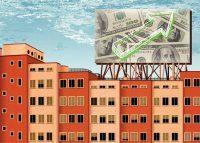In a stunning reversal, Gov. Kathy Hochul pulled the plug on congestion pricing Wednesday, just 25 days before its scheduled start in Manhattan.
The governor cited low office attendance as a primary reason for killing the real estate-backed program, which had been in the works, off and on, since then-Mayor Michael Bloomberg proposed it in 2007.
Hochul said she was concerned that the $15 charge for driving into Manhattan’s central business districts would discourage people from coming to work at a time when few venture in on Mondays and Fridays and office vacancy rate exceeds 20 percent.
But the city’s leading business organization, a stalwart advocate for return-to-office, blasted Hochul’s decision, as did other business-backed groups.
“The toll revenues would amount to only $1 billion a year, which is far less than the $20-plus billion cost of lost productivity, overtime and fuel expenses, environmental and health costs that are the result of excess traffic congestion on the city’s streets and highways,” said Kathryn Wylde, president and CEO of the Partnership for New York City, in a statement.
Real Estate Board of New York president Jim Whelan said, “Congestion pricing will provide environmental and transportation benefits that will make New York City more competitive on the national and international stage. Any delay in its implementation should be of a limited duration.”
Hochul, who until now had expressed strong support for the program, said she would find other ways to pay for the $15 billion in transit improvements that congestion pricing would have funded.
“I remain committed to these investments in public transit,” the governor said on a recorded video message aired early Wednesday afternoon. “Given the lawsuits or other attacks on this process, we’ve already prepared for the possibility that congestion pricing could be delayed.”
She did not say where that money might come from, however, and another business-backed group, the Citizens Budget Commission, was not buying it.
“Congestion pricing is the transit trifecta — providing critical funding for transit, reducing emissions, and easing congestion. We should be staying the course,” Andrew Rein, president of the organization, said in a statement. “All sectors should contribute to improving transit, including drivers.”
Hochul described the cancellation of congestion pricing as a “pause,” but gave no indication that she would ever seek to implement it, other than to say she did not believe it should begin “at this time.”
“Hardworking New Yorkers are getting hammered on costs,” she said in her recorded remarks, which she delivered in a funereal tone. “While our recovery has been stronger and swifter than anyone imagined, it is by no means complete. …I won’t allow this delicate recovery to be jeopardized.”
Politico reported that Rep. Hakeem Jeffries urged Hochul to stop congestion pricing because it would hurt Democrats’ prospects in several key House races this year in New York. Democrats are one seat away from reclaiming the House majority, which would almost certainly result in Jeffries becoming speaker. Last year, Hochul dropped her builders’ remedy proposal for fear that it would cost Democrats seats in 2024.
The real estate industry has been supportive of congestion pricing since Bloomberg made it a centerpiece of his landmark sustainability plan, but critics beat back the proposal and kept it sidelined for years. The Real Estate Board of New York was the lead funder of the advocacy effort to secure its passage in 2018.
The policy has been implemented in Stockholm, Singapore, Milan and London. In each city, initial public resistance faded after its debut, and there was no negative effect on office attendance or the real estate market in general.
“The idea behind congestion pricing is that it will encourage many current drivers to shift to public transit,” Hochul said.
“But there is a third possibility that now poses a greater threat than it did at the program’s inception. Drivers can now choose to stay home altogether, telling employers they need to work fully remote again. Or they might just change their patterns and skip the visits to the city on a Saturday with their family or going out to the theater or a restaurant.”
She did not cite any evidence that a $15 charge would discourage New Yorkers from such activities. Dinner for four plus Broadway tickets and parking costs more than $1,000.
Modeling had showed congestion pricing would reduce traffic in Manhattan by 17 percent, according to the Tri-State Transportation Campaign.
“Fewer cars mean less gridlock, traffic and pollution,” Hochul had said when she was a backer of congestion pricing. “Fewer cars means safer streets, cleaner air, and more room to maneuver for pedestrians and bicyclists.”
Hochul’s staff leaked word of her decision only hours before her announcement, which was immediately condemned by many of her fellow Democrats.
“Congestion pricing was a hard-fought, deliberatively achieved policy to tackle New York City’s congestion crisis, improve the environment, and obtain vital funding for mass transit,” state Sen. Mike Gianaris of Queens tweeted. “Halting its implementation as it was about to begin is a big mistake.”
Rep. Jerrold Nadler, D-Manhattan, tweeted that 85 percent of commuters to the central business district take mass transit, while only 8 percent of those from New Jersey and 3 percent from New York drive.
“It’s evident that congestion pricing will significantly benefit the vast majority of commuters who rely on the MTA, rather than a small, vocal minority of drivers who don’t qualify for exemptions or discounts,” Nadler said.
This article has been updated to mention a report from Politico and additional reactions about Hochul’s decision.
Read more



